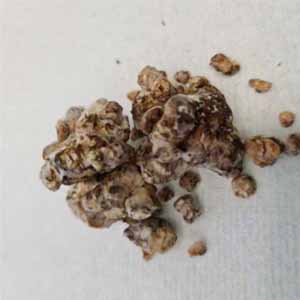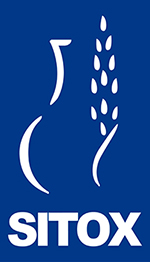Magic truffle intoxication: A case report

Accepted: 4 April 2022
All claims expressed in this article are solely those of the authors and do not necessarily represent those of their affiliated organizations, or those of the publisher, the editors and the reviewers. Any product that may be evaluated in this article or claim that may be made by its manufacturer is not guaranteed or endorsed by the publisher.
Unusual forms of hallucinogenic mushrooms are emerging, which may delay diagnosis and compromise optimal management. Here, we discuss clinical and biological findings in a case of “magic mushroom” intoxication in a 20-year-old man who was brought to hospital emergency department in a state of euphoria, disorientation, intense visual hallucinations, episodic amnesia and agitation requiring physical restraint. The patient’s family brought intact specimens of the consumed product, without any health professional being able to identify it. Toxicological screening detected psilocin in urine and in the unknown mushrooms, allowing guiding the mushroom identification towards the Psilocybes genus. Ten hours post-ingestion, the patient was discharged asymptomatic. We believe that recognition of the unusual form of hallucinogenic mushroom presented here by emergency physicians might contribute to better diagnosis and subsequent optimal management, especially since hallucinogenic substances are not routinely tested in toxicological analyses.
Björnstad K, Hultén P, Beck O, Helander A. Bioanalytical and clinical evaluation of 103 suspected cases of intoxications with psychoactive plant materials. Clin Toxicol 2009;47:566‑72. DOI: https://doi.org/10.1080/15563650903037181
Malaca S, Lo Faro AF, Tamborra A, et al. Toxicology and Analysis of Psychoactive Tryptamines. Int J Mol Sci 2020;21:9279. DOI: https://doi.org/10.3390/ijms21239279
Laussmann T, Meier-Giebing S. Forensic analysis of hallucinogenic mushrooms and khat (Catha edulisForsk) using cation-exchange liquid chromatography. Forensic Sci Int 2010;195:160‑4. DOI: https://doi.org/10.1016/j.forsciint.2009.12.013
Lo Faro AF, Di Trana A, La Maida N, et al. Biomedical analysis of New Psychoactive Substances (NPS) of natural origin. J Pharm Biomed Anal 2020;179:112945. DOI: https://doi.org/10.1016/j.jpba.2019.112945
Pellegrini M, Rotolo MC, Marchei E, et al. Magic truffles or Philosopher’s stones: a legal way to sell psilocybin?: Psilocybin in Psilocybe Sclerotia. Drug Test Anal 2013;5:182‑5. DOI: https://doi.org/10.1002/dta.1400
Passie T, Seifert J, Schneider U, Emrich HM. The pharmacology of psilocybin. Addict Biol 2002;7:357‑64. DOI: https://doi.org/10.1080/1355621021000005937
Madsen MK, Fisher PM, Burmester D, et al. Psychedelic effects of psilocybin correlate with serotonin 2A receptor occupancy and plasma psilocin levels. Neuropsychopharmacology 2019;44:1328‑34. DOI: https://doi.org/10.1038/s41386-019-0324-9
Becker AM, Holze F, Grandinetti T, et al. Acute Effects of psilocybin after escitalopram or placebo pretreatment in a randomized, double‐blind, placebo‐controlled, crossover study in healthy subjects. Clin Pharmacol Ther 2021;cpt.2487. DOI: https://doi.org/10.1002/cpt.2487
Dahmane E, Hutson PR, Gobburu JVS. Exposure‐response analysis to assess the concentration‐QTc relationship of psilocybin/psilocin. Clin Pharmacol Drug Dev 2021;10:78‑85. DOI: https://doi.org/10.1002/cpdd.796
Li S, Ma Q-B, Tian C, et al. Cardiac arrhythmias and cardiac arrest related to mushroom poisoning: A case report. World J Clin Cases 2019;7:2330‑5. DOI: https://doi.org/10.12998/wjcc.v7.i16.2330
Vandael E, Vandenberk B, Vandenberghe J, et al. Risk factors for QTc-prolongation: systematic review of the evidence. Int J Clin Pharm 2017;39:16‑25. DOI: https://doi.org/10.1007/s11096-016-0414-2
PAGEPress has chosen to apply the Creative Commons Attribution NonCommercial 4.0 International License (CC BY-NC 4.0) to all manuscripts to be published.


 https://doi.org/10.4081/ecj.2022.10347
https://doi.org/10.4081/ecj.2022.10347







